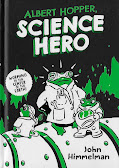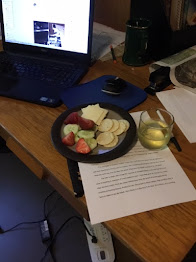I was definitely a fan of the first two books in the Truly Devious trilogy by Maureen Johnson, Truly Devious and The Vanishing Stair. I liked the two mysteries, one set it in the 1930s, the other in the present. I liked the Vermont and school setting.
The finale, The Hand on the Wall, is well reviewed, but not my favorite of the books. The reasons:
- Romance. I liked the mystery. I wanted mystery, and I wanted everything in the book to serve the mystery. I know there is a feeling among some YA people that YA books must have a romance. But with a lot of mysteries, both YA and adult, I find romance a tack-on. It distracts from what is, to me, the real story. In The Hand on the Wall there is one plot point that the romance supports. Maybe there are more points in the first two books that I don't remember. The romance wasn't a great element for me.
- Politics. These books include a political element that involves a cliched bad-guy politician. In the second and third books, the politician does support a plot point. But we have to put up with a lot of him for him to do that.
- Serial, not series. The Truly Devious trilogy is definitely a serial, not a series. I had read and, remember, liked the first two books and still found it difficult to recall material that needed to be recalled to make the last book really work for me.
But that third problem can be by-passed now, because all three books have been published. Read them one after another. Maybe my romance and political issues would be resolved with a binge read, too.







































